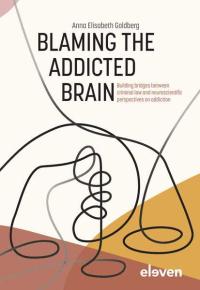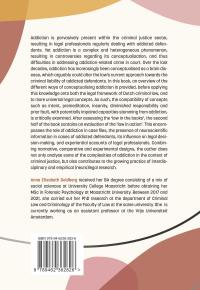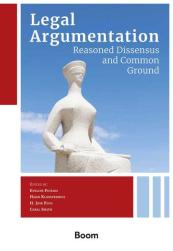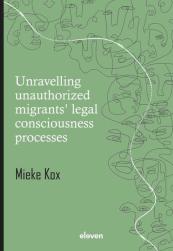Blaming the Addicted Brain
Building bridges between criminal law and neuroscientific perspectives on addiction
Addiction is pervasively present within the criminal justice sector, resulting in legal professionals regularly dealing with addicted defendants. Yet addiction is a complex and heterogeneous phenomenon, resulting in controversies regarding its conceptualisation, and thus difficulties in addressing addiction-related crime in court. Over the last decades, addiction has increasingly been conceptualised as a brain disease, which arguably could alter the law’s current approach towards the criminal liability of addicted defendants. In this book, an overview of the different ways of conceptualising addiction is provided, before applying this knowledge onto both the legal framework of Dutch criminal law, and to more universal legal concepts. As such, the compatibility of concepts such as intent, premeditation, insanity, diminished responsibility and prior fault, with potentially impaired capacities stemming from addiction, is critically examined. After assessing the ‘law in the books’, the second half of the book contains an evaluation of the ‘law in action’. This encompasses the role of addiction in case files, the presence of neuroscientific information in cases of addicted defendants, its influence on legal decision-making, and experiential accounts of legal professionals. Combining normative, comparative and experimental designs, the author does not only analyse some of the complexities of addiction in the context of criminal justice, but also contributes to the growing practice of interdisciplinary and empirical (neuro)legal research.









